Shaping the Future of Data Science: Research Spotlight Series
Welcome to the Research Spotlight Series on 'Shaping the Future of Data Science'. This conference aimed to highlight the excellent research being undertaken by Australia's female data scientists.
Around 40 speakers from across the country gave ten-minute spotlight presentations about their work, challenges and opportunities. We are excited to learn, share and grow our community in this way.
This online event was held from Monday 23 August - Wednesday 25 August 2021
Speakers
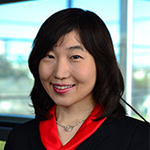 Professor Hong is a Professor and a Future Fellow (2013-2016) at the School of Computer Science, University of Sydney. She was a Humboldt Fellow in 2013-2014, ARC Research Fellow in 2008-2012, and a project leader of VALACON (Visualisation and Analysis of Large and Complex Networks) project at NICTA (National ICT Australia) in 2004-2007. Her main research interests include Graph Drawing, Algorithms, Information Visualisation and Visual Analytics.
Professor Hong is a Professor and a Future Fellow (2013-2016) at the School of Computer Science, University of Sydney. She was a Humboldt Fellow in 2013-2014, ARC Research Fellow in 2008-2012, and a project leader of VALACON (Visualisation and Analysis of Large and Complex Networks) project at NICTA (National ICT Australia) in 2004-2007. Her main research interests include Graph Drawing, Algorithms, Information Visualisation and Visual Analytics.
In 2006, she won the CORE (Computing Research and Education Association of Australasia) Chris Wallace Award for Outstanding Research Contribution in the field of Computer Science, for her research "Theory and Practice of Graph Drawing". The award was given for notable breakthroughs and a contribution of particular significance.
Prof. Hong has held research funding of 4.5 Million, from her 3 Fellowships (Future Fellowship, ARC Research Fellowship and Humboldt Fellowship), 3 ARC Discovery Projects and 2 ARC Linkage Projects including her latest project on "Algorithmics for Visual Analytics of Massive Complex Networks”. She has more than 140 publications including 10 edited books, 7 book chapters, 40 journal papers, and 90 conference papers, and she has given 10 invited talks at international conferences as well as 50 invited seminars worldwide. In particular, she has developed an open source visual analytic software GEOMI with her research team members.
Prof. Hong serves as a Steering Committee member of GD (International Symposium on Graph Drawing), IEEE PacificVis (International Symposium on Pacific Visualization) and ISAAC (International Symposium on Algorithms and Computations) and an editor of JGAA (Journal of Graph Algorithms and Applications). She has served as a Program Committee Chair of AWOCA 2004, APVIS 2005/2007, GD 2007, ISAAC 2008 and IEEE PacificVis 2013, and a Program Committee Member of 50 international conferences. In particular, she has formed the Information Visualisation research community in the Asia-Pacific Region, by founding IEEE PacificVis Symposium.
 Dr Levon Blue is a member of Beausoleil First Nation in Canada. Levon is a Senior Lecturer at the Carumba Institute (QUT) and an editor of the International Journal of Critical Indigenous studies. Her research area includes financial literacy education, Indigenous higher education, and social justice. Levon’s PhD focused on financial literacy education practices in an Aboriginal community in Canada. She is currently a Chief Investigator on two Australian Research Council funded grants: special research initiative – National Indigenous Research and Knowledges Network (NIRAKN) and Discovery Indigenous – Empowering Indigenous businesses through improved financial and commercial literacy. Levon has published many journal articles, book chapters and more recently co-edited a book titled “Indigenizing Education: Discussions and Case Studies from Australia and Canada”.
Dr Levon Blue is a member of Beausoleil First Nation in Canada. Levon is a Senior Lecturer at the Carumba Institute (QUT) and an editor of the International Journal of Critical Indigenous studies. Her research area includes financial literacy education, Indigenous higher education, and social justice. Levon’s PhD focused on financial literacy education practices in an Aboriginal community in Canada. She is currently a Chief Investigator on two Australian Research Council funded grants: special research initiative – National Indigenous Research and Knowledges Network (NIRAKN) and Discovery Indigenous – Empowering Indigenous businesses through improved financial and commercial literacy. Levon has published many journal articles, book chapters and more recently co-edited a book titled “Indigenizing Education: Discussions and Case Studies from Australia and Canada”.
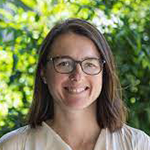 Janice Scealy is a Senior Lecturer of Statistics in the Research School of Finance, Actuarial Studies and Statistics, ANU. Her principal research area is in developing new statistical analysis methods for data with complicated constraints, including compositional data defined on the simplex, spherical data, directional data and manifold-valued data defined on more general curved surfaces. The main field of application of her statistical methods is to earth science, where spherical data and compositional data are commonly observed. Janice has published in a wide range of statistics journals including Journal of theerican Statistical Association and Journal of the Royal Statistical Society Series B. She has also received various grants and awards for her research including two Australian research council grants and recently she was awarded the 2021 Moran Medal from the Australian Academy of Science for her contributions to statistical science.
Janice Scealy is a Senior Lecturer of Statistics in the Research School of Finance, Actuarial Studies and Statistics, ANU. Her principal research area is in developing new statistical analysis methods for data with complicated constraints, including compositional data defined on the simplex, spherical data, directional data and manifold-valued data defined on more general curved surfaces. The main field of application of her statistical methods is to earth science, where spherical data and compositional data are commonly observed. Janice has published in a wide range of statistics journals including Journal of theerican Statistical Association and Journal of the Royal Statistical Society Series B. She has also received various grants and awards for her research including two Australian research council grants and recently she was awarded the 2021 Moran Medal from the Australian Academy of Science for her contributions to statistical science.
View Janice's ANU profile
View Janice's details on the ANU staff directory
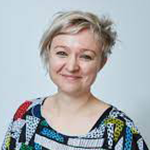 Jessica Kasza is an Associate Professor of Biostatistics at Monash University, where she leads work on the development of theory for cluster randomised trials and causal inference, as well as working with researchers in the design, analysis and interpretation of their studies. She is President of the SSA, having been president of the Victorian Branch in 2017 and 2018, and was the Chair of the SSA's Committee for the Prevention and Response to Sexual and Other Forms of Harassment.
Jessica Kasza is an Associate Professor of Biostatistics at Monash University, where she leads work on the development of theory for cluster randomised trials and causal inference, as well as working with researchers in the design, analysis and interpretation of their studies. She is President of the SSA, having been president of the Victorian Branch in 2017 and 2018, and was the Chair of the SSA's Committee for the Prevention and Response to Sexual and Other Forms of Harassment.
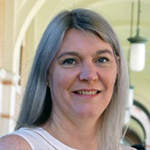 Professor Karin Verspoor is Dean of the School of Computing Technologies at RMIT University in Melbourne, Australia and a Fellow of the Australasian Institute of Digital Health. Karin’s research primarily focuses on the use of artificial intelligence methods to enable biological discovery and clinical decision support, through extraction information from clinical texts and the biomedical literature and machine learning-based modelling. Karin held previous posts as Director of Health Technologies and Deputy Head of the School of Computing and Information Systems at the University of Melbourne, as the Scientific Director of Health and Life Sciences at NICTA Victoria Research Laboratory, at the University of Colorado School of Medicine, and at Los Alamos National Laboratory. She also spent 5 years in start-ups during the US Tech bubble, where she helped design an early artificial intelligence system.
Professor Karin Verspoor is Dean of the School of Computing Technologies at RMIT University in Melbourne, Australia and a Fellow of the Australasian Institute of Digital Health. Karin’s research primarily focuses on the use of artificial intelligence methods to enable biological discovery and clinical decision support, through extraction information from clinical texts and the biomedical literature and machine learning-based modelling. Karin held previous posts as Director of Health Technologies and Deputy Head of the School of Computing and Information Systems at the University of Melbourne, as the Scientific Director of Health and Life Sciences at NICTA Victoria Research Laboratory, at the University of Colorado School of Medicine, and at Los Alamos National Laboratory. She also spent 5 years in start-ups during the US Tech bubble, where she helped design an early artificial intelligence system.
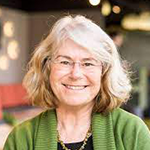 Professor of Business Analytics, in the Department of Econometrics and Business Statistics at Monash University, a Fellow of theerican Statistical Association, and the Editor of the Journal of Computational and Graphical Statistics. My research is in data science, data visualisation, exploratory data analysis, data mining, high-dimensional methods and statistical computing. I love engaging in research, working with data, teaching, advising students and developing open source software.
Professor of Business Analytics, in the Department of Econometrics and Business Statistics at Monash University, a Fellow of theerican Statistical Association, and the Editor of the Journal of Computational and Graphical Statistics. My research is in data science, data visualisation, exploratory data analysis, data mining, high-dimensional methods and statistical computing. I love engaging in research, working with data, teaching, advising students and developing open source software.
Much of my work has been on developing interactive statistical graphics for high-dimensional data, and the implementation has been in these software packages: xgobi, ggobi, cranvas. The primary methods include tours, projection pursuit, manual controls for tours, pipelines for interactive graphics, a grammar of graphics for biological data, and visualizing boundaries in high-d classifiers. I have also experimented with visualizing data in virtual environments, and found that people do see clusters better in that environment than on a single computer screen.
My current work focuses on bridging the gap between statistical inference and exploratory graphics. We are doing experiments usingazon's Mechanical Turk, and eye-tracking equipment. We have found that we can crowd-source people to read plots that can provide statistical significance on visual discoveries. Its very exciting work. We can also use the crowd-sourcing methods to rigorously test whether one data visualisation design is better than another for communicating information.
Some of the applications that I have worked on include backhoes, drug studies, mud crab growth, climate change, educational testing, gene expression analysis, butterfly populations in Yellowstone, stimulus funds spending, NRC rankings of graduate programs, technology boom and bust, election polls, soybean breeding, common crop population structures, insect gall to plant host interactions, bushfires, soccer and tennis statistics. Icurrently looking at Melbourne's pedestrian sensor data. One of the things that I recently found is that boys do NOT universally do better than girls on average on the PISA math scores, and that a handful of countries including UAE, Jordan, Qatar, Thailand and Malaysia have a reverse gender gap - girls score better on average than boys. This finding appears to have been picked up and entered into wikpedia. However, girls universally score better than boys on average in reading.
High-dimensions:
Casting Multiple Shadows: High-Dimensional Interactive Data Visualisation with Tours and Embeddings.
Statistical inference:
Graphical inference for infovis.
Graphical Tests for Power Comparison of Competing Designs .
View Dianne's Monash University staff profile
View Dianne's website
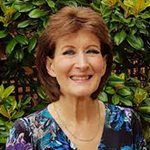 Gael Martin is a Professor of Econometrics and PhD Director in the Department of Econometrics and Business Statistics at Monash University, and Fellow of the Academy of Social Sciences Australia. She was an Australian Research Council Future Fellow from 2010 to 2013. Her primary research interests have been in developing statistical methods for complex dynamic models. The development, application and validation of Bayesian simulation-based methods is central to her research, with recent contributions made to the burgeoning field of approximate Bayesian computation. Her interest is not just in methods of inference and computation, but also prediction, including the impact of inferential technique, and modelling assumptions, on predictive accuracy. Recent work explores the effect of making predictions with a model that does not accord with reality, and proposes a new ‘loss-based’ paradigm that delivers accurate predictions when the predictive model is wrong.
Gael Martin is a Professor of Econometrics and PhD Director in the Department of Econometrics and Business Statistics at Monash University, and Fellow of the Academy of Social Sciences Australia. She was an Australian Research Council Future Fellow from 2010 to 2013. Her primary research interests have been in developing statistical methods for complex dynamic models. The development, application and validation of Bayesian simulation-based methods is central to her research, with recent contributions made to the burgeoning field of approximate Bayesian computation. Her interest is not just in methods of inference and computation, but also prediction, including the impact of inferential technique, and modelling assumptions, on predictive accuracy. Recent work explores the effect of making predictions with a model that does not accord with reality, and proposes a new ‘loss-based’ paradigm that delivers accurate predictions when the predictive model is wrong.
She is currently an Associate Editor of Journal of Applied Econometrics, International Journal of Forecasting (IJF) and Econometrics and Statistics, and was a guest editor for a special issue of IJF on Bayesian Forecasting in Economics.
 Prof Wynn is recognised internationally by her contributions to the formal foundations of process modelling, verification, automation, and process-oriented data mining (process mining). She is Vice-Chair and one of the steering committee members of IEEE Taskforce on Process Mining. She leads the working group on the IEEE standardisation of eXtensible Event Stream (XES), input data format for process mining analyses.
Prof Wynn is recognised internationally by her contributions to the formal foundations of process modelling, verification, automation, and process-oriented data mining (process mining). She is Vice-Chair and one of the steering committee members of IEEE Taskforce on Process Mining. She leads the working group on the IEEE standardisation of eXtensible Event Stream (XES), input data format for process mining analyses.
Prof Wynn completed her PhD in the area of workflow management from QUT (2007). She has published 80+ refereed papers, including 30 journal articles (Google h-index:32; citations:4500+). She has secured over $5 million in grant funding from 16 research projects as a co-chief investigator since 2011. She also has experience with developing open-source software artefacts and an extensive portfolio in delivering industry-informed research outcomes. Her ongoing research focuses on process-oriented data mining (process mining), data quality and robotic process automation for the digital transformation of processes.
Prof Wynn has over twelve years of experience in engaging with Australian industry partners to improve business practices through data-driven methods. She has worked with Australian stakeholders, in a range of sectors including healthcare, insurance, utility, logistics, government and education to pinpoint inefficiencies and derive data-driven process improvements.
Prof Wynn also oversees QUT’s BPM education curriculum that is integrated with the latest applied research; supported by authentic learning opportunities to solve ‘real-world’ problems; and, delivered through various modes that support the needs of diverse cohorts of learners. She has delivered numerous BPM executive education short courses to participants from over 20 Australian organisations since 2007. She is accredited as a Senior Fellow of Higher Education Academy, UK in 2019.
As an international BPM researcher and educator, Prof Wynn has served as a co-chair for conferences and workshops, as a program committee member for international conferences, a grant assessor for the ARC research council, a PhD thesis examiner, and a reviewer of international journals. She acted as a program committee chair of 2nd International Conference on Process Mining 2020 and the International Conference on Business Process Management 2021.
Prof Wynn received a QUT Vice-Chancellor’s Excellence Award (individual) for exceptional sustained performance and outstanding achievement in two categories (Research, Partnerships and Engagement) in 2018. She was a finalist in the ICT Professional category for Women in Technology (WIT) 2019 Awards.
 I am currently the Associate Professor (level D) and Head of Department of Computer Science and Software Engineering at the University of Western Australia UWA. My research is on wireless sensor networks, looking at ways of gathering data efficiently, data mining to make sense of the gathered data and privacy protection. Industries I work with include smart water metering, soil monitoring, rammed earth houses, public transport ticket logs, smart homes and wastewater treatment plants. I have held academic positions at the University of Essex, UK, SRI Cambridge and the University of WA. My PhD University of Cambridge is on formal methods for real-time systems. My BSc and Masters from UWA are on distributed systems. I am an Australian abassador for Women in Data Science.
I am currently the Associate Professor (level D) and Head of Department of Computer Science and Software Engineering at the University of Western Australia UWA. My research is on wireless sensor networks, looking at ways of gathering data efficiently, data mining to make sense of the gathered data and privacy protection. Industries I work with include smart water metering, soil monitoring, rammed earth houses, public transport ticket logs, smart homes and wastewater treatment plants. I have held academic positions at the University of Essex, UK, SRI Cambridge and the University of WA. My PhD University of Cambridge is on formal methods for real-time systems. My BSc and Masters from UWA are on distributed systems. I am an Australian abassador for Women in Data Science.
View Rachel's UWA Research page
Connect with Rachel on LinkedIn
View Rachel's Google Scholar page
 Flora Salim is a Professor in the School of Computing Technologies, RMIT University, Melbourne, Australia, the co-Deputy Director of RMIT Centre for Information Discovery and Data Analytics (CIDDA), and an Associate Investigator of ARC Centre of Excellence in Automated Decision Making and Society. Flora leads the IoT Analytics node, or the Context Recognition and Urban Intelligence (CRUISE) group. Her research interests include human behaviour modelling, time-series and spatio-temporal data mining, machine learning on stream and sensor data, ubiquitous computing, and smart cities. She was a Humboldt-Bayer Fellow, Humboldt Fellow -experienced researcher, Victoria Fellow 2018. She was the recipient of the the RMIT Vice-Chancellor's Award for Research Excellence–Early Career Researcher 2016; the RMIT Award for Research Impact - Technology 2018; Australian Research Council (ARC) Postdoctoral Research Industry Fellowship (2012-2015). She serves as an Associate Editor of the PACM on Interactive, Mobile, Wearable and Ubiquitous Technologies (IMWUT), an Area Editor of Pervasive and Mobile Computing journal, and a Steering Committee member of ACM UbiComp. Prof. Salim has received several ARC Linkage, a Discovery, and numerous international industry grants, including from Microsoft Research, Northrop Grumman Corporations, and Qatar National Research Funds in the domain of intelligent assistants and smart cities.
Flora Salim is a Professor in the School of Computing Technologies, RMIT University, Melbourne, Australia, the co-Deputy Director of RMIT Centre for Information Discovery and Data Analytics (CIDDA), and an Associate Investigator of ARC Centre of Excellence in Automated Decision Making and Society. Flora leads the IoT Analytics node, or the Context Recognition and Urban Intelligence (CRUISE) group. Her research interests include human behaviour modelling, time-series and spatio-temporal data mining, machine learning on stream and sensor data, ubiquitous computing, and smart cities. She was a Humboldt-Bayer Fellow, Humboldt Fellow -experienced researcher, Victoria Fellow 2018. She was the recipient of the the RMIT Vice-Chancellor's Award for Research Excellence–Early Career Researcher 2016; the RMIT Award for Research Impact - Technology 2018; Australian Research Council (ARC) Postdoctoral Research Industry Fellowship (2012-2015). She serves as an Associate Editor of the PACM on Interactive, Mobile, Wearable and Ubiquitous Technologies (IMWUT), an Area Editor of Pervasive and Mobile Computing journal, and a Steering Committee member of ACM UbiComp. Prof. Salim has received several ARC Linkage, a Discovery, and numerous international industry grants, including from Microsoft Research, Northrop Grumman Corporations, and Qatar National Research Funds in the domain of intelligent assistants and smart cities.
 A/Prof Kim-Anh Lê Cao is fascinated with numbers, and how innovative statistics can influence the world. She develops novel methods, software and tools to interpret big biological data and answer research questions efficiently.
A/Prof Kim-Anh Lê Cao is fascinated with numbers, and how innovative statistics can influence the world. She develops novel methods, software and tools to interpret big biological data and answer research questions efficiently.
Kim-Anh is committed to statistical education to instil best analytical practice. Kim-Anh has a mathematical engineering background and graduated with a Ph.D in statistics from the Université de Toulouse, France. She then moved to Australia to forge her own non-linear career path as a multi-disciplinary collaborator, both as a biostatistician consultant at QFAB Bioinformatics, and as a research group leader at the biomedical University of Queensland Diamantina Institute. She currently continues her strong research focus as a senior lecturer at the University of Melbourne. Kim-Anh has secured two consecutive NHMRC fellowships from 2014. In 2019 she received the Australian Academy of Science’s Moran Medal for her contributions to Applied Statistics and was also awarded the Georgina Sweet Award from Prof Leann Tilley for Women in Quantitative Biomedical Science. Kim-Anh was selected to the international Homeward Bound program that aims to build a global collaboration of 1,000 women leaders in STEMM over ten years, culminating to a trip to Antarctica in 2019. Dr Lê Cao's main research focus is on variable selection for biological data (`omics' data) coming from different functional levels by the means of multivariate dimension reduction approaches. Since 2009, her team has been working on developing the statistical R toolkit mixOmics that is dedicated to the integrative analysis of `omics' data, to help researchers make sense of biological big data. She and her team regularly run statistical training workshops and short series seminars and mixOmics multi-day workshops.
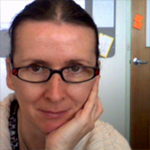 Małgorzata received her MSc degree in Mathematics and Education from Wroclaw University in 1987. She completed her MSc thesis in the area of reliability of linear consecutive systems under the supervision of Prof Tomasz Rolski. She then received her PhD degree in applied probability from the University of Adelaide in 2002. Her PhD thesis supervisor was the esteemed Prof Charles Pearce. Later, she completed her postdoc at the Teletraffic Research Centre at Adelaide University, working as a Research Associate on an ARC Discovery project, with Profs Peter Taylor and Nigel Bean, in the area of matrix-analytic methods. She has been a lecturer in probability, operations research, stochastic modelling and discrete mathematics at the University of Tasmania since 2005.
Małgorzata received her MSc degree in Mathematics and Education from Wroclaw University in 1987. She completed her MSc thesis in the area of reliability of linear consecutive systems under the supervision of Prof Tomasz Rolski. She then received her PhD degree in applied probability from the University of Adelaide in 2002. Her PhD thesis supervisor was the esteemed Prof Charles Pearce. Later, she completed her postdoc at the Teletraffic Research Centre at Adelaide University, working as a Research Associate on an ARC Discovery project, with Profs Peter Taylor and Nigel Bean, in the area of matrix-analytic methods. She has been a lecturer in probability, operations research, stochastic modelling and discrete mathematics at the University of Tasmania since 2005.
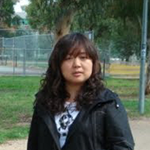 Dr. Xiangmin Zhou received her PhD in Computer Science from the University of Queensland (Australia) in 2008. She is a Lecturer in Computer Science & IT with RMIT University, Australia. She worked in CSIRO Australia as a Research Scientist from 2008 to 2012. She was an Adjunct Research Fellow at Australian National University from 2012 to 2017, and a Research Fellow at Victoria University, Australia from June 2014 to Jan. 2015. Her current research interests lie in data-driven machine learning, social network analysis and mining, recommender systems and big data processing, crowdsourced data analysis, multimedia database and streams. She has published over 65 high quality publications and commercialized patents, including a number of papers published in top conferences and top journals, such as ACM SIGMOD Conference, ACM Multimedia Conference, ICDE Conference, VLDB Journal, IEEE Trans. on Multimedia, IEEE Trans. on Knowledge and Data Engineering etc. She is a guest editor of TKDE special issue on Online Recommendation Using AI and Big Data Techniques 2021, and the tutorial co-chair in ADMA 2020; and the program committee chair in the 1st International Workshop on Context-Aware Recommendation Systems with Big Data Analytics (CARS-BDA), WSDM 2019. She is a TPC member in VLDB, AAAI, IJCAI, ICDE, ACM MM etc. She has served as an invited reviewer of many journals, such as VLDB Journal, IEEE Trans. on Multimedia, Multimedia System, and IEEE TKDE etc.
Dr. Xiangmin Zhou received her PhD in Computer Science from the University of Queensland (Australia) in 2008. She is a Lecturer in Computer Science & IT with RMIT University, Australia. She worked in CSIRO Australia as a Research Scientist from 2008 to 2012. She was an Adjunct Research Fellow at Australian National University from 2012 to 2017, and a Research Fellow at Victoria University, Australia from June 2014 to Jan. 2015. Her current research interests lie in data-driven machine learning, social network analysis and mining, recommender systems and big data processing, crowdsourced data analysis, multimedia database and streams. She has published over 65 high quality publications and commercialized patents, including a number of papers published in top conferences and top journals, such as ACM SIGMOD Conference, ACM Multimedia Conference, ICDE Conference, VLDB Journal, IEEE Trans. on Multimedia, IEEE Trans. on Knowledge and Data Engineering etc. She is a guest editor of TKDE special issue on Online Recommendation Using AI and Big Data Techniques 2021, and the tutorial co-chair in ADMA 2020; and the program committee chair in the 1st International Workshop on Context-Aware Recommendation Systems with Big Data Analytics (CARS-BDA), WSDM 2019. She is a TPC member in VLDB, AAAI, IJCAI, ICDE, ACM MM etc. She has served as an invited reviewer of many journals, such as VLDB Journal, IEEE Trans. on Multimedia, Multimedia System, and IEEE TKDE etc.
 Professor Ann E. Nicholson is Interim Dean in the Faculty of Information Technology. Other recent leadership roles including Deputy Dean (Research) 2018-2020, (Acting) Deputy Dean 2016-2017, and Associate Dean (Education) 2014-2016. After completing her BSc (Hons) and MSc in Computer Sciene at the University of Melbourne, in 1988 she was awarded a Rhodes scholarship to Oxford, where she did her doctorate in the Robotics Research Group. After completing a post-doc at Brown University, she returned to Australia to take up a lecturing position position at Monash in 1994. Prof. Nicholson's researches in Artificial Intelligence and is a leading international researcher in the specialised area of Bayesian networks, now the dominant technology for probabilistic causal modelling in intelligent systems. She has published more than 100 peer reviewed papers, co-authored the well-received book "Bayesian Artificial Intelligence", and attracted more than $12M in research funding. She has applied Bayesian Network technology to problem-solving in many domains including meteorology, epidemiology, medicine, education and environmental science. Examples include the use of BNs in biosecurity risk assessment, predicting the impact of conservation actions on threats and habitats of threatened species, fog forecasting and clinical decision support for COVID-19.
Professor Ann E. Nicholson is Interim Dean in the Faculty of Information Technology. Other recent leadership roles including Deputy Dean (Research) 2018-2020, (Acting) Deputy Dean 2016-2017, and Associate Dean (Education) 2014-2016. After completing her BSc (Hons) and MSc in Computer Sciene at the University of Melbourne, in 1988 she was awarded a Rhodes scholarship to Oxford, where she did her doctorate in the Robotics Research Group. After completing a post-doc at Brown University, she returned to Australia to take up a lecturing position position at Monash in 1994. Prof. Nicholson's researches in Artificial Intelligence and is a leading international researcher in the specialised area of Bayesian networks, now the dominant technology for probabilistic causal modelling in intelligent systems. She has published more than 100 peer reviewed papers, co-authored the well-received book "Bayesian Artificial Intelligence", and attracted more than $12M in research funding. She has applied Bayesian Network technology to problem-solving in many domains including meteorology, epidemiology, medicine, education and environmental science. Examples include the use of BNs in biosecurity risk assessment, predicting the impact of conservation actions on threats and habitats of threatened species, fog forecasting and clinical decision support for COVID-19.
 Yvonne enjoys mathematical modelling, particularly where differential equations are employed. Her primary research interests are in the field of fluid dynamics, in particular free-surface and viscous flow problems. One application area of interest is the drawing of micro-structured optical fibres; another is particle focusing in flows along curved microfluidic ducts. Yvonne is also interested in problems in mathematical biology, such as nutrient transport and uptake and chemical signalling, with applications in assisted reproduction technologies. Yvonne is keen to investigate the use of data in development of predictive models and how such models might aid data science.
Yvonne enjoys mathematical modelling, particularly where differential equations are employed. Her primary research interests are in the field of fluid dynamics, in particular free-surface and viscous flow problems. One application area of interest is the drawing of micro-structured optical fibres; another is particle focusing in flows along curved microfluidic ducts. Yvonne is also interested in problems in mathematical biology, such as nutrient transport and uptake and chemical signalling, with applications in assisted reproduction technologies. Yvonne is keen to investigate the use of data in development of predictive models and how such models might aid data science.
Yvonne is a Professor in the School of Mathematical Sciences at The University of Adelaide. She is a member of the ANZIAM Executive Committee as an ANZIAM representative of ICIAM, a member of the Australian Academy of Science National Committee for Mechanical and Engineering Sciences, and has served on the Executive Committee of the Women in Mathematics Special Interest Group (WIMSIG) of the Australian Mathematical Society, including as the Chair (2017-2018). She held an ARC Future Fellowship from 2017 to mid 2021. She sees it as important to encourage female students to consider STEM Careers, to support women in mathematics, and to promote the value of mathematics in the wider community.
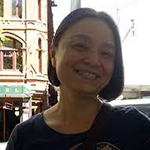 I am an Associate Professor of Statistics at the school of Mathematics and statistics. My research is focussed primarily on the development of Bayesian models and computational methodology to solve real world problems. My current interests include developing Bayesian semiparametric models; computational methods for large spatial data arising from medical images; approximate Bayesian inference methods and various applications of Bayesian methodology to real world problems.
I am an Associate Professor of Statistics at the school of Mathematics and statistics. My research is focussed primarily on the development of Bayesian models and computational methodology to solve real world problems. My current interests include developing Bayesian semiparametric models; computational methods for large spatial data arising from medical images; approximate Bayesian inference methods and various applications of Bayesian methodology to real world problems.
My research interests include:
- Bayesian inference, Bayesian nonparametrics
- Bayesian computation: Markov chain Monte Carlo Approximate Bayesian computation
- Quantile regression
- Spatial modelling
- Statistical applications in ecology
- Medical image analysis
View Yanan's UNSW staff profile
View Yana's Google Scholar page
 Talk overview: In this talk, I will present novel machine learning methods of feature representation learning for text and other high-dimensional datasets. These features can then be used by classification and clustering techniques for making machine learning models.
Talk overview: In this talk, I will present novel machine learning methods of feature representation learning for text and other high-dimensional datasets. These features can then be used by classification and clustering techniques for making machine learning models.
Biography: Richi Nayak is Leader of the Applied Data Science Program at the Centre of Data Science and Associate Professor at School of Computer Science Queensland University of Technology, Brisbane Australia. She has made multiple advances in social media mining, deep neural networks, multi-view learning, matrix/tensor factorization, clustering and recommender systems. Her research has resulted in the development of novel solutions to address industry-specific problems in Marketing, K-12 Education, Agriculture, Digital humanities, and Mining. She has authored over 180 high-quality refereed publications that have attracted over 3500 citations and a h-index of 30. Her research leadership is recognised by multiple best paper awards and nominations at international conferences, QUT Postgraduate Research Supervision awards, and the 2016 Women in Technology (WiT) Infotech Outstanding Achievement Award in Australia. She holds a PhD in Computer Science from the Queensland University of Technology and a Masters in Engineering from IIT Roorkee.
View Richi's QUT staff profile
Learn more about Richi's work
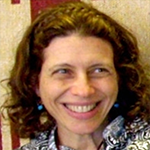 I am a Professor of Mathematics at STEM-UniSA.
I am a Professor of Mathematics at STEM-UniSA.
My research focuses on several aspects of optimization, ranging from functional analysis and variational inequalities to practical applications. I publish in optimization theory, solution techniques for nonsmooth optimization, and convergence analysis of algorithms.
My interests span
• theoretical aspects of optimization,
• constraint qualifications for nonsmooth optimization,
• theory of monotone operators,
• convex analysis,
• multiobjective optimization and the development of new scalarization techniques.
I have published more than 70 journal articles in these topics and co-authored a Springer book entitled "Set-valued Analysis and enlargements of monotone operators", which focuses on the use of point-to-set theory for optimization. I am an associate editor of several international journals in the field of optimization.
View Regina's University of South Australia staff profile
View Regina's Google Scholar page
 I am an Australian Research Council Discovery Early Career Award (DECRA) Fellow and Senior Lecturer in the School of Mathematical Sciences at Queensland University of Technology (QUT). I co-lead the Applied Mathematical Ecology Group, which is a diverse and dynamic group of like-minded researchers in the QUT Maths department at all career stages. I am a Chief Investigator and theme leader for two major strategic research centres at QUT: Centre for the Environment, and Centre for Data Science.
I am an Australian Research Council Discovery Early Career Award (DECRA) Fellow and Senior Lecturer in the School of Mathematical Sciences at Queensland University of Technology (QUT). I co-lead the Applied Mathematical Ecology Group, which is a diverse and dynamic group of like-minded researchers in the QUT Maths department at all career stages. I am a Chief Investigator and theme leader for two major strategic research centres at QUT: Centre for the Environment, and Centre for Data Science.
Previously I was a postdoctoral researcher in the Potts Research Group at University of California Berkeley, where I studied land use change in developing nations. My PhD was supervised by Hugh Possingham at the University of Queensland (UQ).
I use decision science and operations research to improve the outcomes achieved for biodiversity from conservation management.
Ecological systems are incredibly complex, and changing how those systems interact and evolve can have unexpected implications. I build mathematical models of coupled ecological, land-use, and economic systems to understand the mechanisms driving success, failure, and efficiency of management actions. My aim is to understand the mechanisms driving our pressures on the environment, and use that knowledge to help guide better decisions to reduce the negative effects on biodiversity.
We can achieve better outcomes for the environment and society when we plan better management and policy using mathematics. We can be careful, transparent, and defensible in our biodiversity conservation while acknowledging deep complexities and risks.
 Danielle Navarro is a computational cognitive scientist and Associate Professor at the University of New South Wales. Her research focuses on human concept learning and reasoning, and on statistical methods in the behavioural sciences. Other topics she has researched include data visualisation, decision making, language and cultural evolution, cognitive development, and forensic psychology. In her work as a computational cognitive scientist, she uses a mix of experimental methods and computational modelling techniques to explore how the human mind works. Danielle is a cofounder of R-Ladies Sydney, and holds editorial roles at Science and Psychological Review. On occasions she has been known to masquerade as a statistician, data scientist, software developer and generative artist. She is prone to describing herself in the third person in biographies, but is willing to admit that it’s super weird.
Danielle Navarro is a computational cognitive scientist and Associate Professor at the University of New South Wales. Her research focuses on human concept learning and reasoning, and on statistical methods in the behavioural sciences. Other topics she has researched include data visualisation, decision making, language and cultural evolution, cognitive development, and forensic psychology. In her work as a computational cognitive scientist, she uses a mix of experimental methods and computational modelling techniques to explore how the human mind works. Danielle is a cofounder of R-Ladies Sydney, and holds editorial roles at Science and Psychological Review. On occasions she has been known to masquerade as a statistician, data scientist, software developer and generative artist. She is prone to describing herself in the third person in biographies, but is willing to admit that it’s super weird.
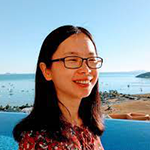 Professor, Computer Science, the Australian National University.
Professor, Computer Science, the Australian National University.
I lead the ANU Computational Media Lab - http://cm.cecs.anu.edu.au
I'm also affiliated with CSIRO Data61, formerly known as NICTA.
My research focus broadly on innovative use and design of machine learning algorithms and systems, especially on structured and multi-relational graph data. Several areas of recent work include:
* Popularity in social media -- understanding, predicting, and optimization
* Multimedia knowledge graph and its applications, vision and language.
* Machine learning and applications.
View Lexing's ANU staff profile
View Lexing's Google Scholar page
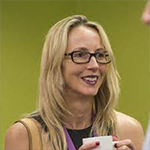 Professor Marijka Batterham is Director of the Statistical Consulting Centre which provides statistical advice to staff and postgraduate students. Prior to an academic career Marijka was a clinical Dietitian specialising in the management of metabolic abnormalities in HIV/AIDS. After completing a post doctoral position in energy expenditure at the University of Wollongong Marijka remained at UOW initially in Nutrition and now in Statistics. Marijka holds dual professional qualifications from the Dietitian’s Association of Australia as an Advanced Accredited Practising Dietitian and the Statistical Society of Australia as an Accredited Statistician.
Professor Marijka Batterham is Director of the Statistical Consulting Centre which provides statistical advice to staff and postgraduate students. Prior to an academic career Marijka was a clinical Dietitian specialising in the management of metabolic abnormalities in HIV/AIDS. After completing a post doctoral position in energy expenditure at the University of Wollongong Marijka remained at UOW initially in Nutrition and now in Statistics. Marijka holds dual professional qualifications from the Dietitian’s Association of Australia as an Advanced Accredited Practising Dietitian and the Statistical Society of Australia as an Accredited Statistician.
Marijka is early adopter of new statistical methods for clinical interventions in weight management including the areas of energy expenditure and physical activity research. Her research focus incorporates energy expenditure and body composition methodology and more recently the use of biostatistics to update and improve the statistical methodology and analysis of broad lifestyle related nutrition based clinical research aimed at weight management. A major issue in these trials is attrition or drop out and researching predictors of attrition and methods to analyse trials with missing data is Marijka's current research priority.
View Marijka's University of Wollongong's staff profile
View Marijka's IHMRI profile
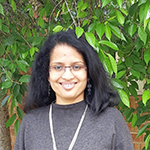 I use statistics, mathematics and machine learning to find unusual patterns in data. They are referred to by different names. They can be called anomalies, outliers or novelties. Sometimes they are called events, especially if an unusual activity is happening over time. What are some examples? Well, intrusions (attacks) in computer networks are anomalies, which are sometimes called anomalous events. Credit card fraud is another example. Fraudulent credit card transactions are anomalies when we consider billions of legitimate transactions. Or a malfunctioning sensor can give out an unusual pattern indicating that the sensor needs replacing or that the batteries have run out. A sudden increase in atmospheric aerosols captured by sensors may indicate a bushfire.
I use statistics, mathematics and machine learning to find unusual patterns in data. They are referred to by different names. They can be called anomalies, outliers or novelties. Sometimes they are called events, especially if an unusual activity is happening over time. What are some examples? Well, intrusions (attacks) in computer networks are anomalies, which are sometimes called anomalous events. Credit card fraud is another example. Fraudulent credit card transactions are anomalies when we consider billions of legitimate transactions. Or a malfunctioning sensor can give out an unusual pattern indicating that the sensor needs replacing or that the batteries have run out. A sudden increase in atmospheric aerosols captured by sensors may indicate a bushfire.
Why is it important to find these unusual patterns? If we detect them quickly, we can act upon it. Yes, early detection is really important. Can we detect an intrusion while it is happening? In this case we only have partial information, which is a challenge. Another challenge is that the data can be high dimensional making it difficult to find anomalies. These are some of the research challenges that I work on. I also like working on real world problems, especially ones that are motivated by industry. From 2016 to 2019, I worked with an industry partner on intrusion detection.
I am an applied mathematician. I came to statistical learning from a mathematics background. My PhD was in mean curvature flow, which has a lot of geometry and differential equations involved. I bring my geometric intuition to my current work.
View Sevvandi's website
View Sevvandi's RMIT staff profile
View Sevvandi's Google Scholar page
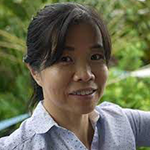 Carla Ewels is a Lecturer in statistics/data sciences at James Cook University. She received her doctoral in statistics from the Queensland University of Technology supervised by the Distinguished Professor Kerrie Mengersen. Carla has strong interests in statistical modelling and methods, particularly in the Bayeisan framework. These include, but are not limited to, modelling of complex systems, Bayesian temporal and spatial models, model comparisons, classification, clustering, analysis of big data and Markov Chain Monte Carlo methods. She is especially interested in applying statistics to real problems. To date, she has worked in the field of marine and medical research, genetics, agriculture and fisheries.
Carla Ewels is a Lecturer in statistics/data sciences at James Cook University. She received her doctoral in statistics from the Queensland University of Technology supervised by the Distinguished Professor Kerrie Mengersen. Carla has strong interests in statistical modelling and methods, particularly in the Bayeisan framework. These include, but are not limited to, modelling of complex systems, Bayesian temporal and spatial models, model comparisons, classification, clustering, analysis of big data and Markov Chain Monte Carlo methods. She is especially interested in applying statistics to real problems. To date, she has worked in the field of marine and medical research, genetics, agriculture and fisheries.
View Carla's James Cook University staff profile
Learn more about Carla via James Cook University
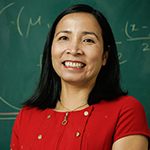 Dr Brenda Vo is a Lecturer in Statistics with expertise in theoretical and applied Bayesian statistics, especially with applications in health and cell biology. Brenda completed her PhD in Computational Bayesian Statistics in 2016 at Queensland University of Technology (QUT). The thesis develops new statistical methods to provide key insights into the mechanisms driving the spread of cell populations such as motility, proliferation and cell-to-cell adhesion, using experimental data. The new methods allow us to precisely estimate the parameters of such mechanisms, quantify the associated uncertainty and investigate how these mechanisms are influenced by various factors. It provides a useful tool to measure the efficacy of medical treatments that aim to influence the spread of cell populations.
Dr Brenda Vo is a Lecturer in Statistics with expertise in theoretical and applied Bayesian statistics, especially with applications in health and cell biology. Brenda completed her PhD in Computational Bayesian Statistics in 2016 at Queensland University of Technology (QUT). The thesis develops new statistical methods to provide key insights into the mechanisms driving the spread of cell populations such as motility, proliferation and cell-to-cell adhesion, using experimental data. The new methods allow us to precisely estimate the parameters of such mechanisms, quantify the associated uncertainty and investigate how these mechanisms are influenced by various factors. It provides a useful tool to measure the efficacy of medical treatments that aim to influence the spread of cell populations.
Before her appointment at UNE in August 2017, Brenda worked as a biostatistician on several projects in public health and nutrition sciences at QUT and Menzies School of Health Research, and as a Maths teacher at Kien Giang Community Collegue in Vietnam.
Brenda’s research works focus on complex statistical analyses and interpretation of population-based epidemiological data with specific focus on agent-based models (ABM) for applications in infectious disease transmission and health behaviors. Brenda is actively engaged in several multi-disciplinary projects in wide-ranging collaborations; both internally and externally. Projects topics are:
• Developing statistical inferential techniques for ABM models for Chlamydia infection in the genital track of guinea pigs
• Developing an ABM approach to simulate the distribution of general practitioners (GP) doctors in NSW
• Modelling the relationship of Q fever notifications with livestock movement and determining factors that influence the immunisation rates, knowledge and awareness of Q fever among high risk groups.
• Evaluating the “Living well multicultural lifestyle modification program”, a joint project between the School of Exercise and Nutrition Sciences, QUT, and the Ethnic Communities Council of Queensland (ECCQ).
Brenda is currently co-supervising three PhD students, overseeing and providing statistical supports for serval HDRs and researchers at UNE. She is also keen to engage in the international outreach that looks at strategies to enhance collaborations between UNE and Vietnam universities. Outside of professional life, Brenda has interests in family, politics, human rights and travelling.
View Brenda's UNE staff profile
View Brenda's Google Scholar page
View Brenda's ACEMS profile
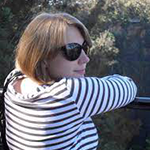 My passion is turning pure mathematics into practical ways to explore the world and improve the future. My approach spans proving theorems in algebraic topology, to developing statistical methods, to analysing data in diverse applications.
My passion is turning pure mathematics into practical ways to explore the world and improve the future. My approach spans proving theorems in algebraic topology, to developing statistical methods, to analysing data in diverse applications.
Born and bred in Sydney, I studied pure mathematics at the University of Sydney. During my PhD at the University of Chicago I discovered Topological Data Analysis; an innovative field mixing pure and applied mathematics. In a joint postdoc at École Polytechnique Fédérale de Lausanne (EPFL, Switzerland) I bridged the Mathematical Statistics group and the Laboratory for Topology and Neuroscience. In 2017 I returned to Australia, joining the Mathematical Sciences Institute (MSI) at ANU.
My other job is as mother to three children - each born on a different continent.
View Katharine's ANU staff profile
View Katharine's Google Scholar page
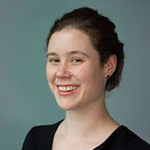 Dr Leah South is a lecturer in statistics at Queensland University of Technology (QUT), an associate investigator of the QUT Centre for Data Science and an associate investigator of the Australian Research Council Centre of Excellence in Mathematical and Statistical Frontiers. Leah's research interests are in Bayesian computational statistics, especially variance reduction techniques, scalable Monte Carlo and approximate Bayesian computation. More information about Leah's research can be found at her website
Dr Leah South is a lecturer in statistics at Queensland University of Technology (QUT), an associate investigator of the QUT Centre for Data Science and an associate investigator of the Australian Research Council Centre of Excellence in Mathematical and Statistical Frontiers. Leah's research interests are in Bayesian computational statistics, especially variance reduction techniques, scalable Monte Carlo and approximate Bayesian computation. More information about Leah's research can be found at her website
View Leah's website
View Leah's QUT staff profile
View Leah's Google Scholar page
View Leah's ACEMS profile
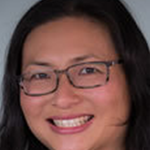 Professor Jean Yang is an applied statistician with expertise in statistical bioinformatics. She was awarded the 2015 Moran Medal in statistics from the Australian Academy of Science in recognition of her work on developing methods for molecular data arising in cutting edge biomedical research. Her research stands at the interface between medicine and methodology development and has centered on the development of methods and the application of statistics to problems in -omics and biomedical research. She has made contributions to the development of novel statistical methodology and software for the design and analysis of high-throughput biotechnological data including that from microarrays, mass spectrometry and next generation sequencing. Recently, much of her focus is on integration of multiple biotechnologies with clinical data to answer a variety of scientific questions. This includes developing various approaches and methodologies in statistical machine learning and network analysis. As a statistician who works in the bioinformatics area, she enjoys research in a collaborative environment, working closely with scientific investigators from diverse backgrounds.
Professor Jean Yang is an applied statistician with expertise in statistical bioinformatics. She was awarded the 2015 Moran Medal in statistics from the Australian Academy of Science in recognition of her work on developing methods for molecular data arising in cutting edge biomedical research. Her research stands at the interface between medicine and methodology development and has centered on the development of methods and the application of statistics to problems in -omics and biomedical research. She has made contributions to the development of novel statistical methodology and software for the design and analysis of high-throughput biotechnological data including that from microarrays, mass spectrometry and next generation sequencing. Recently, much of her focus is on integration of multiple biotechnologies with clinical data to answer a variety of scientific questions. This includes developing various approaches and methodologies in statistical machine learning and network analysis. As a statistician who works in the bioinformatics area, she enjoys research in a collaborative environment, working closely with scientific investigators from diverse backgrounds.
View Jean's staff profile
View Jean's Google Scholar page
View Jean's Wikipedia page
 Maria Garcia De La Banda is a Professor at the Faculty of Information Technology with more than 25 years of experience as an academic. She is the current Deputy Dean Research of the Faculty and Co-Chair of the Monsh-Woodside FutureLab. From 2013 to 2016 she was the overall Deputy Dean of the Faculty, and prior to this she was the Head of the Caulfield School of Information Technology at the Faculty. Her research interests include Combinatorial Optimisation, Program analysis and Transformation, Programming Languages and Bioinformatics. Since 2010 she has been Area Editor of the Journal of Theory and Practice of Logic Programming, and since 2019 member of the Editorial Board of the Constraints journal. She has been Chief Investigator in 10 ARC grants (2 cross-Faculty), Principal Investigator in an NHMRC program.
Maria Garcia De La Banda is a Professor at the Faculty of Information Technology with more than 25 years of experience as an academic. She is the current Deputy Dean Research of the Faculty and Co-Chair of the Monsh-Woodside FutureLab. From 2013 to 2016 she was the overall Deputy Dean of the Faculty, and prior to this she was the Head of the Caulfield School of Information Technology at the Faculty. Her research interests include Combinatorial Optimisation, Program analysis and Transformation, Programming Languages and Bioinformatics. Since 2010 she has been Area Editor of the Journal of Theory and Practice of Logic Programming, and since 2019 member of the Editorial Board of the Constraints journal. She has been Chief Investigator in 10 ARC grants (2 cross-Faculty), Principal Investigator in an NHMRC program.
Maria's PhD, awarded in 1994, won the Universidad Politecnica de Madrid's Best PhD Award. In 1997 she was awarded the first and only prestigious Logan Fellowship in the Faculty of Information Technology a role she held for 6 years. In 2005 she won, with Peter Stuckey, the International Constraint Modelling Challenge. She has been an elected member of the Executive Committee of the Association of Logic Programming (2005-2008) and of the Executive Committee of the Association of Constraint Programming (2017-2020), of which she was also elected as President (2019-2020).
View Maria's Monash University staff profile
View Maria's Google Scholar page
Connect with Maria on LinkedIn
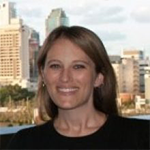 Dr Char-lee Moyle (also published as Char-lee McLennan) is a DTIS Innovation Metrics Mid-Career Research Fellow in the Centre for Data Science and Centre for Future Enterprise at QUT. Char-lee has a PhD in Tourism Economics from the University of Queensland, for which she won multiple awards including the Emerald/EFMD Outstanding Doctoral Research Award, the 2012 UQ Dean’s Award for Research Higher Degree Excellence and the 2012 Best Paper Award from the Journal of Hospitality and Tourism Research.
Dr Char-lee Moyle (also published as Char-lee McLennan) is a DTIS Innovation Metrics Mid-Career Research Fellow in the Centre for Data Science and Centre for Future Enterprise at QUT. Char-lee has a PhD in Tourism Economics from the University of Queensland, for which she won multiple awards including the Emerald/EFMD Outstanding Doctoral Research Award, the 2012 UQ Dean’s Award for Research Higher Degree Excellence and the 2012 Best Paper Award from the Journal of Hospitality and Tourism Research.
Char-lee’s research is focused in three main streams of research, specifically: 1) regional economic development and transformation; 2) strategic policy and planning; and 3) the adoption of sustainability. Char-lee has also undertaken numerous commercial research projects, including revitalizing regional tourism infrastructure, undertaking labour market analyses, investigating the gap between supply and demand for indigenous tourism and exploring strategic issues in Australian tourism. Her research has featured in various media outlets, including the Conversation, Brisbane Times, Sydney Morning Herald and GreenAir Online, amongst others.
Char-lee has strong links into government and industry having previously worked as a Senior Advisor Tourism and Economic Development at the Local Government Association of Queensland, as a Research Fellow at the Griffith Institute for Tourism, as a Senior Research Analyst for Tourism Queensland, as a Research Officer responsible for the International Visitor Survey (IVS) for Tourism Research Australia (TRA) and as a Research Officer for Gold Coast City Council’s (GCCC) Tourism Branch within the Economic Development and Major Projects (EDMP) directorate.
Char-lee is a skilled practitioner with expertise in research, grant writing, data management, econometric modelling and economic development and strategy. Char-lee is the Developer of the Longitudinal Australian Business Integrated Intelligence (LABii) database. She was the Team Lead for the Global Entrepreneurship Monitor Australia in 2019 and the ‘Data Rockstar’ for MIT’s Regional Entrepreneurship Acceleration Program (REAP) Team Queensland. She is proficient in numerous statistical software including STATA, Base SAS, SAS Enterprise Miner, SPSS, R, and Leximancer.
View Char-lee's QUT staff profile
View Char-lee's QUT CDS profile
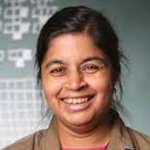 Payne-Scott Professor Nalini Joshi AO is Chair of Applied Mathematics at the University of Sydney, and a Georgina Sweet Australian Laureate Fellow.
Payne-Scott Professor Nalini Joshi AO is Chair of Applied Mathematics at the University of Sydney, and a Georgina Sweet Australian Laureate Fellow.
Nalini was born and spent her early childhood in Burma, before her family emigrated to Australia. She was awarded a BSc (Hons), with the University Medal in applied mathematics, by the University of Sydney in 1982 and then a PhD in computational and applied mathematics in 1987 by Princeton University in the USA.
Her research focuses on mathematical methods to study integrable systems, which arise as universal models everywhere. Nalini's strong research achievements led to several distinctions. She was elected as a Fellow of the Australian Academy of Science in 2008, won an Australian Research Council Georgina Sweet Australian Laureate Fellowship in 2012 and was the 150th AnniversaryHardy Fellow of the London Mathematical Society in 2015.
Nalini also has a keen intereset in diversity and her Laureate Fellowship had a component to attract and retain female researchers in STEM. She was foundation co-Chair of the SAGE (Science in Australia Gender Equity) national initiative, which is currently running a pilot program that involves 44 research organisations in Australia, including 33 universities.
In the 2016 Queen’s Birthday honours, Nalini was appointed an Officer of the Order of Australia for distinguished service to mathematical science and tertiary education as an academic, author and researcher, to professional societies, and as a role model and mentor of young mathematicians.
View Nalini's staff profile
View Nalini's Wikipedia page
View Nalini's Science.org profile
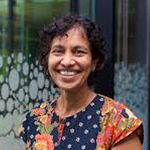 Asha Rao started her academic career as an Associate Lecturer at RMIT in 1992, rising through the ranks to become Professor in 2016. She is currently the Associate Dean of Mathematical Sciences within the School of Science at RMIT University. Asha is a trans-disciplinary researcher with a number of diverse research partnerships, ranging from mathematics and communication technologies to social media and architecture, resulting in highly ranked publications and over $1.5M in funding over the past 8 years.
Asha Rao started her academic career as an Associate Lecturer at RMIT in 1992, rising through the ranks to become Professor in 2016. She is currently the Associate Dean of Mathematical Sciences within the School of Science at RMIT University. Asha is a trans-disciplinary researcher with a number of diverse research partnerships, ranging from mathematics and communication technologies to social media and architecture, resulting in highly ranked publications and over $1.5M in funding over the past 8 years.
The impact of her research in risk which addresses issues such as fraud and money-laundering has resulted in invitations to participate in national and international bodies. In early 2018, she attended, by invitation, the 4th United Nations Intergovernmental meeting on cybercrime. She has undertaken Leadership roles both within RMIT and outside.
As Program Director for Information Security, she brought management and business into a mainly technical degree, making many links with the cyber security industry. As the founding chair of the Women in Maths, she put in place a number of initiatives to improve gender equity within the mathematical sciences. As a cybersecurity expert, she appears regularly on audio visual and print media and has won RMIT Media star awards.
View Asha's RMIT staff profile
View Asha's Science and Technology Australia profile
View Asha's STEM Women profile
View Asha's Google Scholar page
 Joanna Wang is a currently Senior Lecturer in the School of Mathematical and Physical Sciences at the University of Technology Sydney. Before joining UTS, Joanna worked as a research Statistician in the Bureau of Crime Statistics and Research in the Department of Communities and Justice. Her research primarily focuses on applied statistics, with applications in health, epidemiology and crime. Joanna’s work is motivated by real-world problems arising in these fields and she is interested in developing statistical tools and methods for analysing data to answer policy relevant questions.
Joanna Wang is a currently Senior Lecturer in the School of Mathematical and Physical Sciences at the University of Technology Sydney. Before joining UTS, Joanna worked as a research Statistician in the Bureau of Crime Statistics and Research in the Department of Communities and Justice. Her research primarily focuses on applied statistics, with applications in health, epidemiology and crime. Joanna’s work is motivated by real-world problems arising in these fields and she is interested in developing statistical tools and methods for analysing data to answer policy relevant questions.
View Joanna's UTS staff profile
View Joanna's university profile
 Dr Anjali Gupta is a Lecturer in the School of Mathematical and Physical Sciences and a researcher in the UTS Centre for Forensic Science.
Dr Anjali Gupta is a Lecturer in the School of Mathematical and Physical Sciences and a researcher in the UTS Centre for Forensic Science.
Dr Gupta received her PhD from the University of Auckland in 2019 where she worked on Interpreting Forensic Trace Evidence using Multi-Elemental and Spectroscopic Data. She was awarded her MSc from the University of Oxford in 2011. She worked in the industry as Data Scientist, Statistician and Consultant in various domains - energy sector, financial markets, marketing during 2012 until 2020. She also worked as a co-organiser for R Ladies Auckland group from 2017 until 2020.
 Associate Professor Jessica Mar's research group focuses on the development of bioinformatics methods to understand how regulatory processes go awry in human diseases. Specifically, the groups is interested in modelling how variability of gene expression contributes to regulation of the transcriptome. This interest has led us very naturally into single cell biology where there is a great need to develop accurate statistical approaches for data arising from single cell sequencing. Elucidating heterogeneity and variability in gene expression in this context in important as this may uncover new cellular subtypes or identify stochasticity in the usage of key pathway or master regulators.
Associate Professor Jessica Mar's research group focuses on the development of bioinformatics methods to understand how regulatory processes go awry in human diseases. Specifically, the groups is interested in modelling how variability of gene expression contributes to regulation of the transcriptome. This interest has led us very naturally into single cell biology where there is a great need to develop accurate statistical approaches for data arising from single cell sequencing. Elucidating heterogeneity and variability in gene expression in this context in important as this may uncover new cellular subtypes or identify stochasticity in the usage of key pathway or master regulators.
The explosive availability of big data sets, coupled with the speed at which sequencing technologies have advanced have created an exciting environment for the current state of computational biology research. The Mar group looks to modern tools in statistics, such as Bayesian methodologies and machine learning algorithms, to make sense of biology from big data.
View Jessica's UQ profile
View Jessica's UQ research
profileVIew Jesssica's AIBN UQ profile
View Jessica's Google Scholar page
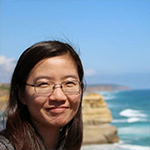 Dr. Heejung Shim is a lecturer in statistical genomics at University of Melbourne and a group leader at Melbourne Integrative Genomics. She also retains an affiliation with Purdue University as an Adjunct Assistant Professor. Her broad research interests are statistical genomics, Bayesian computational statistics, bioinformatics. Much of her research has focused on the development of statistical methods and computational tools for analysis of complex and large-scale genomics data to tackle biological questions, particularly for understanding genetic basis of complex traits and gene regulatory mechanisms. She completed her PhD in Statistics from the University of Wisconsin at Madison and did a postdoc at the University of Chicago. Previous to her position at University of Melbourne, she was an Assistant Professor in the Department of Statistics at the Purdue University. Please visit her website for more information about her research.
Dr. Heejung Shim is a lecturer in statistical genomics at University of Melbourne and a group leader at Melbourne Integrative Genomics. She also retains an affiliation with Purdue University as an Adjunct Assistant Professor. Her broad research interests are statistical genomics, Bayesian computational statistics, bioinformatics. Much of her research has focused on the development of statistical methods and computational tools for analysis of complex and large-scale genomics data to tackle biological questions, particularly for understanding genetic basis of complex traits and gene regulatory mechanisms. She completed her PhD in Statistics from the University of Wisconsin at Madison and did a postdoc at the University of Chicago. Previous to her position at University of Melbourne, she was an Assistant Professor in the Department of Statistics at the Purdue University. Please visit her website for more information about her research.
View Heejung's website
View Heejung's Google Scholar page
View Heejung's university staff profile
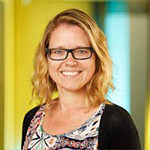 Elise van den Hoven is a professor of Human-Computer Interaction, leading the Materialising Memories research program at University of Technology Sydney in Australia and Eindhoven University of Technology in the Netherlands. She investigates personal remembering and forgetting experiences, in particular in relation to physical objects and digital media, with the aim of supporting people’s remembering practices through interactive products, systems and services.
Elise van den Hoven is a professor of Human-Computer Interaction, leading the Materialising Memories research program at University of Technology Sydney in Australia and Eindhoven University of Technology in the Netherlands. She investigates personal remembering and forgetting experiences, in particular in relation to physical objects and digital media, with the aim of supporting people’s remembering practices through interactive products, systems and services.
Connect with Elise on LinkedIn
View Elise ORCID website
View Elise's UTS staff profile
View Materialising Memories website
View Elise's website
 Dr. Helen Thompson holds a PhD in Statistics from the University of Glasgow (2008). Her PhD thesis on optimal experimental design was supervised by Dr. Ben Torsney. She was previously awarded a BSc (Hons) – Class I in Mathematics from the University of Queensland (2001). Her honours research on multiple imputation was supervised by Prof. Annette Dobson. Helen also holds a BSc in Statistics from the University of Queensland (2000). Helen has held an academic position in the School of Mathematical Sciences since 2007. Prior to this she held a position as Teaching Assistant at the University of Glasgow during the course of her PhD, was a Research Officer at the Australian Bureau of Statistics after completing a Cadetship during her BSc (Hons), and briefly worked as a Research Officer for Brisbane Water during her BSc.
Dr. Helen Thompson holds a PhD in Statistics from the University of Glasgow (2008). Her PhD thesis on optimal experimental design was supervised by Dr. Ben Torsney. She was previously awarded a BSc (Hons) – Class I in Mathematics from the University of Queensland (2001). Her honours research on multiple imputation was supervised by Prof. Annette Dobson. Helen also holds a BSc in Statistics from the University of Queensland (2000). Helen has held an academic position in the School of Mathematical Sciences since 2007. Prior to this she held a position as Teaching Assistant at the University of Glasgow during the course of her PhD, was a Research Officer at the Australian Bureau of Statistics after completing a Cadetship during her BSc (Hons), and briefly worked as a Research Officer for Brisbane Water during her BSc.
Research discipline: Mathematical Sciences
Areas of expertise:
• Optimal design of experiments
• Clinical trial design
• Bayesian design
• Spatial modelling and sampling
• Copula modelling
• Stochastic frontier modelling
• Appled statistics
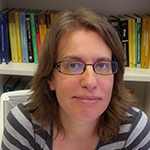 Aurore Delaigle is internationally known for her innovative contributions to mathematical statistics. With a unifying theme of nonparametric methods, she has made transformative contributions in several statistical subfields, including functional data analysis and measurement error. Delaigle is a theoretician with a remarkable ability to communicate complex and abstract concepts in an understandable manner. She has received many prestigious awards, including the 2017 Snedecor Award from the Committee of Presidents of Statistical Societies in the United States which cited her “fundamental and ground-breaking contributions.”
Aurore Delaigle is internationally known for her innovative contributions to mathematical statistics. With a unifying theme of nonparametric methods, she has made transformative contributions in several statistical subfields, including functional data analysis and measurement error. Delaigle is a theoretician with a remarkable ability to communicate complex and abstract concepts in an understandable manner. She has received many prestigious awards, including the 2017 Snedecor Award from the Committee of Presidents of Statistical Societies in the United States which cited her “fundamental and ground-breaking contributions.”
View Aurore's university staff profile</a >
View Aurore's Science.org profile
View Aurore's secondary university staff profile
View Aurore's Wikipedia page
View Aurore's Google Scholar page
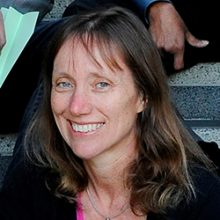 Kerrie Mengersen graduated in 1985 with a Bachelor of Arts (Honours Class 1), majoring in Mathematics (Statistics) and Computing, and received her PhD in Mathematical Statistics in 1989 from the University of New England, New South Wales. Her PhD thesis was on the topic of ranking and selection under the supervision of Professor Eve Bofinger, one of the pioneer female university researchers in regional Australia.
Kerrie Mengersen graduated in 1985 with a Bachelor of Arts (Honours Class 1), majoring in Mathematics (Statistics) and Computing, and received her PhD in Mathematical Statistics in 1989 from the University of New England, New South Wales. Her PhD thesis was on the topic of ranking and selection under the supervision of Professor Eve Bofinger, one of the pioneer female university researchers in regional Australia.
Following graduation, she was recruited to a commercial statistical consulting company, which provided her with strong experience in a wide range of statistical methods in the context of diverse applied problems. Her career since then has been characterised by a dual focus of engaging with and developing new statistical methodology motivated by, and motivating, challenging statistical applications.
In 2016, QUT awarded the title of Distinguished Professor to Professor Kerrie Mengersen in recognition of her outstanding achievements, both nationally and internationally, in mathematics and statistical research. Distinguished Professor Mengersen is acknowledged to be one of the leading researchers in her discipline.
In 2016 Professor Mengersen also received two more prestigious awards: the Statistical Society of
Australia’s Pitman Medal, the highest award presented by the Society and the first time it has been presented to a woman, and the Research Excellence award by the Cooperative Research Centre for Spatial Analysis (CRCSI).
In 2018 Professor Mengersen was elected a Fellow of the Australian Academy of Science (AAS); a Fellow of the Academy of Social Sciences in Australia (ASSA); and an Invited Fellow of the Queensland Academy of Arts and Sciences (QAAS).
 There’s clear potential for AI and data science to positively impact the world. But there are also risks that AI will exaggerate society’s existing biases, prejudices and inequities. At Monash Data Futures Institute, we firmly believe that AI should be a force for social good. This philosophy underpins everything we do, from the projects we support to the way we interact with end-users and other stakeholders.The Monash Data Futures Institute is a University-wide institute that brings together data science and AI capabilities from across the University in the areas of Health Sciences, Sustainable Development, and Policy and Governance. The Institute aims to be the leading centre for AI and data science in the region, and is the largest such institute in Australia.
There’s clear potential for AI and data science to positively impact the world. But there are also risks that AI will exaggerate society’s existing biases, prejudices and inequities. At Monash Data Futures Institute, we firmly believe that AI should be a force for social good. This philosophy underpins everything we do, from the projects we support to the way we interact with end-users and other stakeholders.The Monash Data Futures Institute is a University-wide institute that brings together data science and AI capabilities from across the University in the areas of Health Sciences, Sustainable Development, and Policy and Governance. The Institute aims to be the leading centre for AI and data science in the region, and is the largest such institute in Australia.
Professor Joanna L. Batstone, Ph.D., is the inaugural Director of the Monash Data Futures Institute and is responsible for bringing together data science and AI capabilities from across the University. Joanna will continue to establish a digital ecosystem which fosters collaborative interdisciplinary research and promotes lasting industry engagements. An exceptional thought leader in the development and application of AI and data analytics, Joanna is passionate about the benefits of AI in driving lasting and transformative change for social good.
Joanna joins Monash from IBM, where she was recently Vice President, Innovation, IBM Corporate Strategy based in New York. Joanna held a variety of technical and business leadership roles in IBM's Research and Development Laboratories, including work with IBM Watson Data & AI. Joanna is an experienced technology executive with international experience managing teams in the USA, Europe and Australia. From 2014-2017, Joanna was Vice President and Lab Director, IBM Research – Australia and Chief Technology Officer, IBM Australia and New Zealand. Joanna joined IBM in the T.J. Watson Research Center in Yorktown Heights, NY, in the Physical Sciences department.
Joanna received a B.Sc., in Chemical Physics and a Ph.D., in Physics from The University of Bristol, UK, followed by postdoctoral work at AT&T Bell Laboratories, NJ, and a Lectureship in the Department of Materials Science and Engineering at the University of Liverpool, UK, before joining IBM. She received the Burton Medal from the Microscopy Society of America, the Robert Lansing Hardy Gold Medal from The Minerals, Metals and Materials Society and the Cosslett Award from the Microbeam Analysis Society.
View Joanna's university staff profile
View Joanna's LinkedIn profile
Follow Joanna on Twitter
 Margot Brereton is a national and international leader in the collaborative design of new humanitarian technologies and their interfaces. She designs with real user communities whose needs are typically overlooked in technology development. She has focused on better futures for and the agency of older people, people with intellectual disabilities, connecting people to nature, and fostering use of endangered indigenous languages.
Margot Brereton is a national and international leader in the collaborative design of new humanitarian technologies and their interfaces. She designs with real user communities whose needs are typically overlooked in technology development. She has focused on better futures for and the agency of older people, people with intellectual disabilities, connecting people to nature, and fostering use of endangered indigenous languages.
Margot works with particular communities in long term engagements over several years to ensure that designs fit into people’s lives in positive ways with people shaping their evolution. Margot’s approach, which focuses on tangibles, connected interfaces, AI and machine learning technologies, leads to innovative designs and new theoretical understandings and methods in the field of Human-Computer Interaction.
Margot is Professor of Engineering and Interaction Design in QUT’s School of Computer Science and Director, Research Performance at QUT’s Institute for Future Environments. She has served on the Australian Research Council College of Experts. Margot has raised over $6 million in competitive grant funding, published more than 230 fully peer-reviewed papers and supervised 14 PhD students to completion. She began her career as an apprentice at Rolls Royce aircraft engines and holds a PhD in Mechanical Engineering Design from Stanford University.
Broad area of research:Human-Computer Interaction, Participatory Design, Interaction Design, Computer Supported Cooperative Work, Design Methods, Ubiquitous Computing, Socio-technical Systems
View Margot's university staff profile
View Margot's Google Scholar page
Connect with Margot on Linkedin